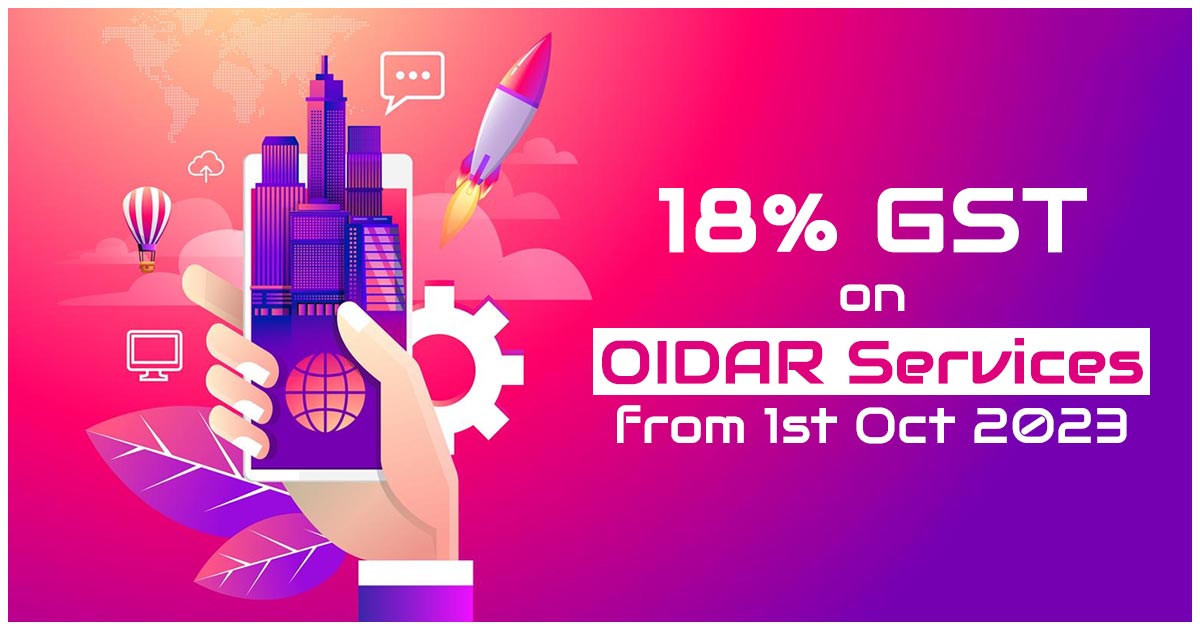
Starting from October 1st, there will be an 18% Integrated Goods and Services Tax (IGST) imposed on the import of online services for personal use from offshore digital service providers. These providers include software vendors, content streaming platforms, social media companies, and search engines that host advertisements.
This new tax regulation is by a directive from the finance ministry, which enforces a series of tax amendments introduced in this year’s budget.
This notification signifies a substantial shift in the tax framework that applies to non-resident digital service providers, referred to as ‘Online Information Database Access and Retrieval (OIDAR)’ services. The government, through the Finance Act, eliminated the tax exemption previously granted for importing OIDAR services for personal use. Consequently, the responsibility for collecting and remitting taxes to the Indian government now rests with the service exporter.
In the previous system, aside from the tax exemption on personal use imports, the obligation to remit taxes to the government was on the consumer if they were a GST-registered individual importing the service for business purposes. Since it was challenging for Indian tax authorities to differentiate between personal and business usage, shifting the responsibility for tax payment to the exporting firm in cases of personal use simplifies the tax collection process.
Read Also: Centre Making a Rating Process to Select GST-compliant Vendors
Previously, services provided by entities located in non-taxable territories to the Central government, state government, government authorities, or individuals for non-business purposes enjoyed an exemption. However, starting October 1st, this exemption will no longer apply to Online Information Database Access and Retrieval (OIDAR) services, rendering them taxable.
This amendment explicitly states that the aforementioned exemption will cease to apply to OIDAR services as of October 1, 2023. Consequently, OIDAR services provided to the mentioned entities are now subject to taxation. This change is anticipated to boost government revenue as it encompasses social media platforms, online search engines, and other digital economy firms that extensively serve Indian customers through their offshore subsidiaries.
OIDAR services, as per legal definitions, encompass services delivered through information technology over the internet, primarily automated, and involving minimal human intervention. These services encompass internet advertising, cloud services, the provision of e-books, software, digital content distribution, data storage, etc.










I wanna know where exactly it is specified that OIDAR services has a tax rate of 18 %, i wanna know the exact notification or the provision